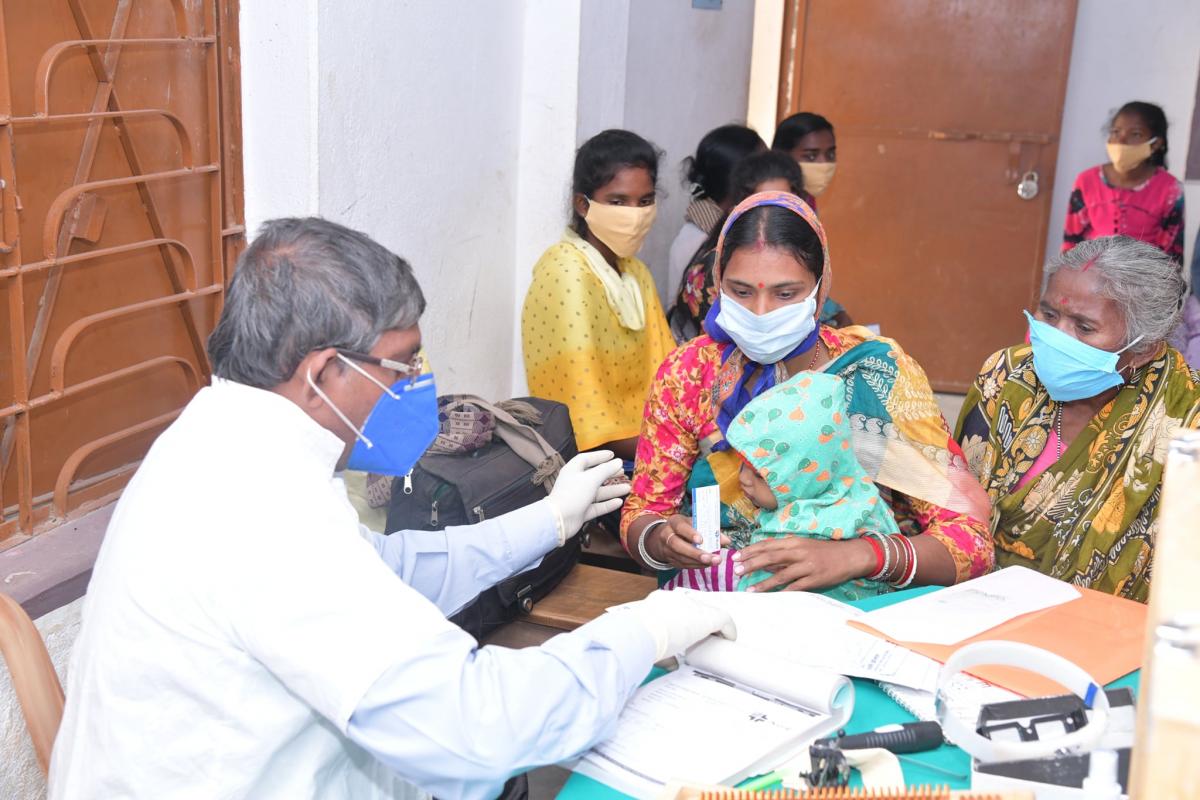By Analiese Tisa, Marketing & Communications Intern, Beneficial Returns
If Sujay Santra had been told 11 years ago that he would alter the healthcare infrastructure in India, he would not have believed it. In 2009, Sujay was working as a solution architect for a tech firm, but his life took a sharp pivot when his father started experiencing cardiac health issues. After months of traveling long distances to receive consultations from various doctors, Sujay and his family discovered that a lack of care coordination and medical expertise had led his father to be given the wrong prescription.
 Frustrated about how a healthcare system failed to help someone with access to education, technology, and financial resources, Sujay wondered how people with even fewer privileges received adequate medical attention. Motivated by these frustrations, Sujay created iKure to address the gap between medical providers and patients. iKure is a holistic healthcare provider that services communities in India through in-person clinics and innovative technology. iKure’s local Hub and Spokes model consists of local clinics and trained Community Health Workers who administer tests and direct consultations. This model reduces the patient-doctor gap by implementing health centers in rural villages, equipped with qualified doctors and staff, and partnering with local NGOs. Its complementary digital platforms, such as the iKure app, reach more patients through services like telemedicine, eye check-ups, and research surveys. iKure caters to corporations, foundations, local governments, and academic institutions across rural and urban regions in India and is expanding to other countries.
Frustrated about how a healthcare system failed to help someone with access to education, technology, and financial resources, Sujay wondered how people with even fewer privileges received adequate medical attention. Motivated by these frustrations, Sujay created iKure to address the gap between medical providers and patients. iKure is a holistic healthcare provider that services communities in India through in-person clinics and innovative technology. iKure’s local Hub and Spokes model consists of local clinics and trained Community Health Workers who administer tests and direct consultations. This model reduces the patient-doctor gap by implementing health centers in rural villages, equipped with qualified doctors and staff, and partnering with local NGOs. Its complementary digital platforms, such as the iKure app, reach more patients through services like telemedicine, eye check-ups, and research surveys. iKure caters to corporations, foundations, local governments, and academic institutions across rural and urban regions in India and is expanding to other countries.
For over a decade, iKure has provided last-mile accessible and affordable healthcare and is a 2018 Miller Center graduate. In 2020, the COVID-19 pandemic forced iKure to take a new direction. An $80,000 emergency loan issued by the Truss Fund enabled iKure to expand its services amidst global uncertainty. Some of the enterprise’s initiatives over the past year and a half include COVID testing, COVID awareness campaigns, and intervention programs to reduce infection rates. Additionally, a new population health management system predicts and notifies Community Health Workers on disease outbreaks and streamlines the collection of clinical data, which has made medical services more efficient.
The impact of iKure is evident: its health network, led by over 540 community health workers, provides coverage to 4,000 villages and 8 million people. Currently, iKure operates nine Hubs, six mini-clinics, and 160 Intervention Spokes throughout India and Vietnam. What began as a personal quest to provide care to a single patient has now matured into an ambitious goal of offering quality healthcare to 50 million patients by 2025.
In April 2020, Beneficial Returns and Miller Center for Social Entrepreneurship launched Truss Fund 1.0 to make emergency loans to social enterprises struggling in the face of COVID-19. Truss Fund 2.0 was launched in summer 2021.
This article was originally published in the Truss Fund 1.0 Quarterly Update.


